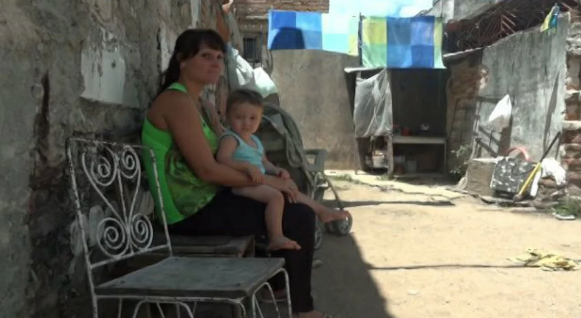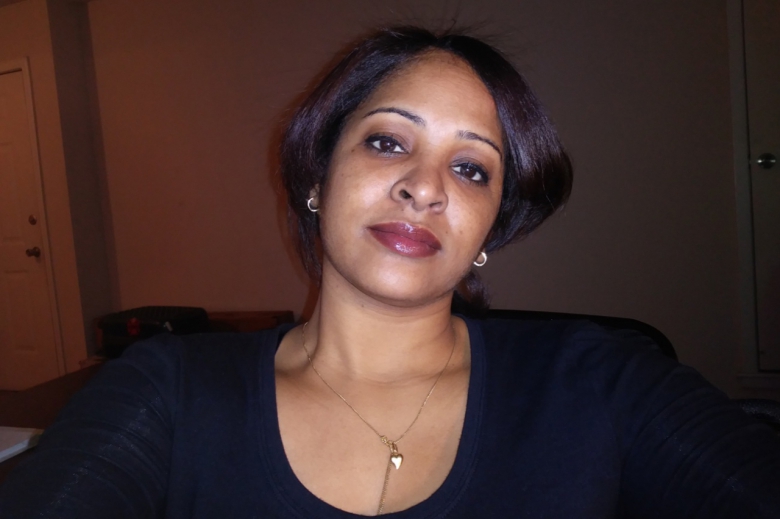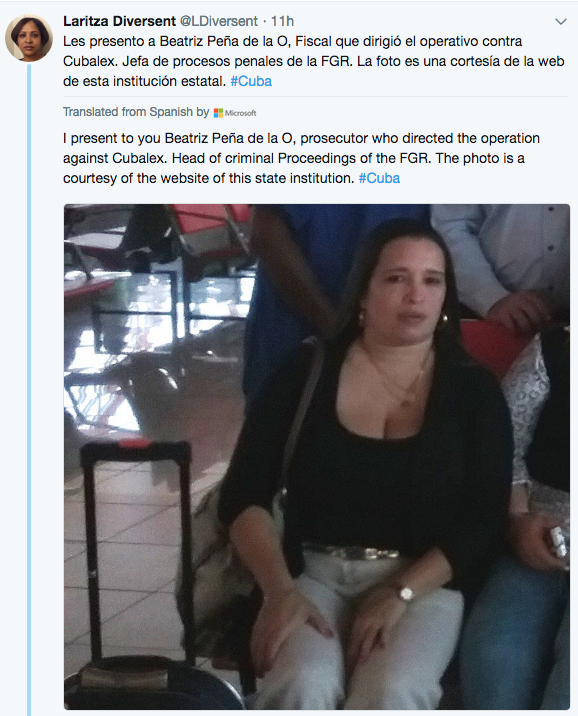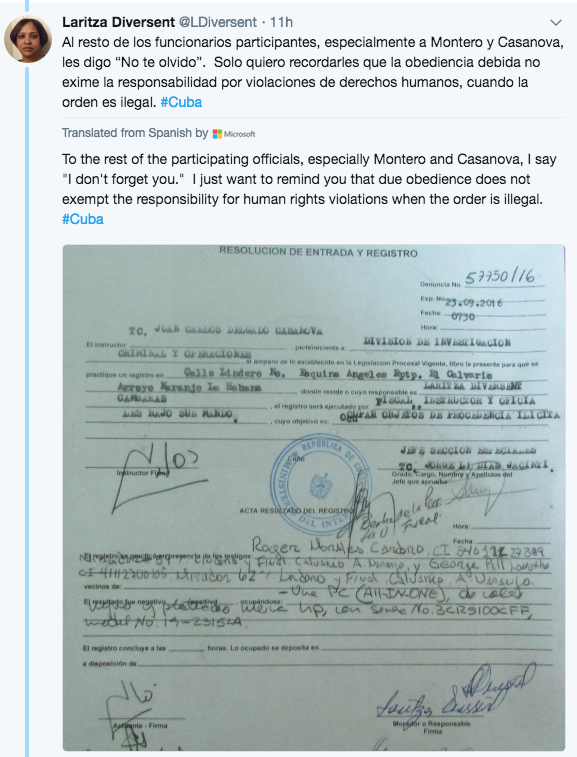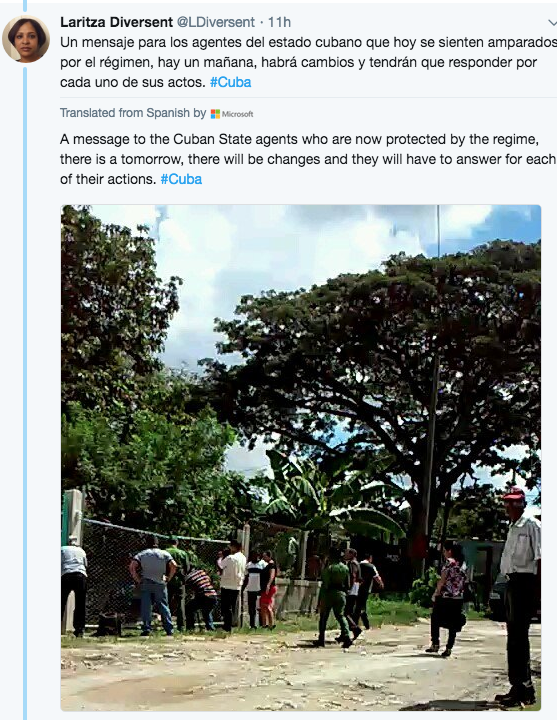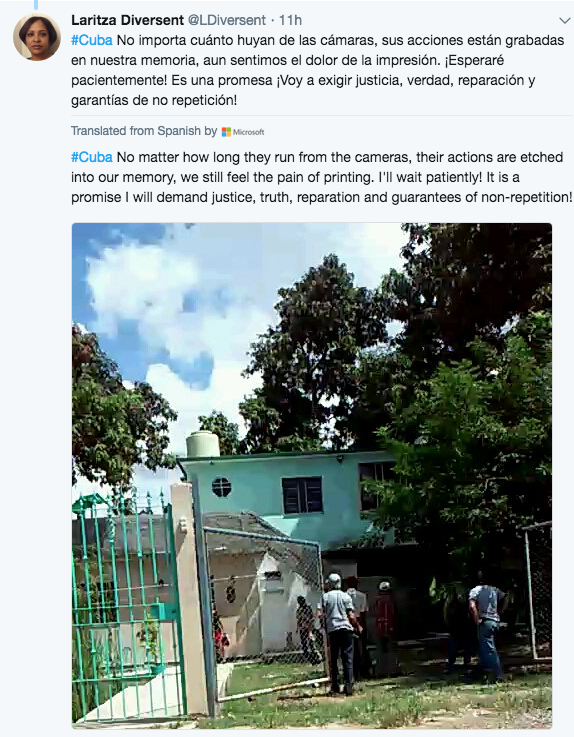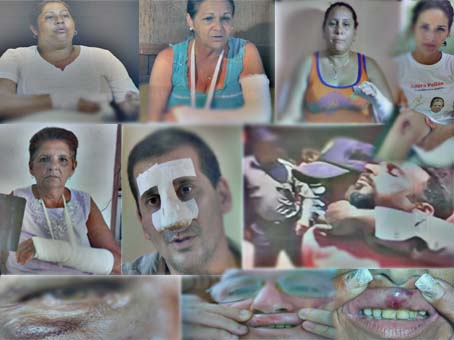Cubalex registered in the state of Tennessee in the USA. We currently have a Board of Directors that governs the organization. The team, which includes me, works online because we live in different states, mostly in Pennsylvania.
It was difficult to accept that you have to start a new life, and adapt to new customs and idiosyncrasies. Everything is missed, especially the aroma of coffee on the terrace where we met up almost every morning to begin our work, and working in the same physical space, and personally receiving those who visited us at the office in Cuba. Today we see each other on a screen. It has been a radical, difficult and painful change. All of us have shed tears of nostalgia. continue reading
Have your relatives suffered reprisals in Cuba?
As long as we continue doing the same work as in Cuba, which is vexing for the Government, and it continues to yield results, as we appeal to international human rights organizations and shine a light on the situation in the country, our relatives in Cuba will be at risk. It is one of the forms of punishment that the regime wields best. We have to recognize it. They are effective. We are powerless in this regard.
What difficulties does having to work from outside Cuba entail?
Obtaining the resources to keep the organization running and including the entire Cubalex team that left Cuba as part of the staff. On another front, making the activists in Cuba understand the importance of reporting, at the international level, the human rights violations of which they are victims, which is a difficulty that we had in Cuba. Thus far we have not managed for many to report the repression to which they are subjected. The record of complaints lodged with international organizations for human rights violations by the Cuban government is paltry.
Has the project had to modify its objectives given this new scenario?
Not yet. We changed the population group that the organization focused on. Between 2011 and 2015 54.85% of the cases we dealt with were related to criminal matters brought to us by persons deprived of their freedom. In 2016, up until the time that our headquarters was searched, 61% of the requests for our services were made by inmates in prisons, 48% of whom presented their cases directly at our offices, through a family member, generally mothers.
After leaving the country, we cannot continue providing counsel in a personalized way, at least not directly. The deficient Internet access on the Island makes it unlikely that we can keep up this pace of work. We are currently focused on monitoring and following up on activists at risk. But, as I said before, it is a difficult task that requires a lot of patience and perseverance on our part.
In Cuba, we assisted 982 human rights activists, members of different civil society organizations who claimed to be victims of arbitrary short-term arrests, repudiation rallies, official citations, as well as searches in their homes. We conducted 96 training workshops for 613 activists in eight provinces of the country, most of them in the east. We also provided legal advice to activists in an individualized manner, but the statistics compiled by our office show that of the vulnerable groups at risk, they are those who least turned to us.
One of the main struggles with activists in Cuba is to get them to follow our recommendations to document cases of violations of their rights, which is essential to carrying out our work at the international level. We are aware of the ignorance in Cuban civil society of the mechanisms for reporting human rights violations at the domestic and international levels. This prevents the development of strategies to mitigate the risks and threats to the activities they carry out.
How is the activists’ lack of awareness of complaint mechanisms, and their importance, evidenced?
In August of 2016 Cubalex prepared basic human rights courses to teach activists from partner organizations. We formally invited 13 organizations, but only 10 responded, of which 7 appointed a representative to attend the course. Then 6 confirmed they would appear, but the course was ultimately attended by 3. This means that there is not only ignorance, but also a lack of interest.
Cubalex has observed that most activists use social media as their favorite means of reporting violations of their rights. At the beginning of 2017 we surveyed 106 activists, and 84.91% said that they defended their rights through this channel. We also monitored the social media accounts (Twitter and Facebook) of 72 activists or members of at least 9 organizations operating informally in the country. The information was insufficient to monitor the specific situation and document human rights violations. Example: the names of the victims of the acts committed were not mentioned, who committed them, or when.
Social media, despite being the most used via by activists to denounce human rights violations and get the public’s attention, is not the appropriate way to attract that of international human rights organizations capable of pressuring the Government. These organizations do not use social media as a source of information. It is necessary to document the violations, draft a report, and send it to these institutions. Complaints on the social networks must be maintained, while improving posting strategies to provide more information about the incidents reported, but it should not be the main tool.
How do you get information from inside Cuba?
Directly from the victims, by telephone and by email. We use social media to identify activists at risk or to report violations occurring at the moment. If the person does not offer data to locate him, we inquire through other activists until coming into direct contact with the victim.
What is the situation like for those members of Cubalex who remained in Cuba?
They are awaiting a final decision by the US Government in the political asylum case. We keep abreast of the status of each one, especially Julio Ferrer. We presented his case to the Working Group on Arbitrary Arrests while we were still in Cuba, and it worked. He is currently free, although he is not out of danger.
What has happened to the cases that Cubalex was handling? Did the regime’s action have any consequences for those people?
For now, we don’t know. The prohibitive prices of the Internet and telephone calls off the island make it impossible for people to contact us. We, from outside, also have economic restrictions on making calls to Cuba and following up on them. Our long-term plans including creating strategies and conditions so that the population, especially the poor, have access to a free legal advice service.
What lines of work is Cubalex currently pursuing?
We are following the same line. Reporting human rights violations by the Cuban State, and spotlighting the situation in the country. The filing of complaints in accordance with special United Nations procedures is one of the few tools we have to report human rights violations in the country, and the only one that the State officially reacts to. Between 2011 and 2016 the Government received 24 communications from UN bodies, and responded to 21 of them. The Cuban Commission for Human Rights and National Reconciliation, however, reported 44,604 acts of harassment during the same period. Cubalex intends to change this reality.
Cubalex is working on another report on violence against women in Cuba. Why is it necessary to revisit this issue?
In general, women in Cuba, although they have access to education, health, employment, sexual and reproductive rights, and equal pay for equal work, continue to do most of the work at home, and to raise their children, despite the fact that most of them work outside the home too. Even so, Havana does boast high gender standards compared to other countries in Latin America. The Cuban State subscribes to the Convention for the elimination of all forms of discrimination against women, but to date there is no gender law in the country that protects women from violence, and there are no shelters for victims of this scourge.
Added to this phenomenon is institutionalized discrimination, especially through criminal law. For example, the designation of people as “pre-criminal social hazards,” which allows the authorities to categorize and punish people for what they are, and not for what they do, perpetuates prejudices and stereotypes of a racial nature, based on gender, socioeconomic level, marginality, lifestyle, ideology and political opinion.
The “pre-criminal social hazard” measure, in addition to being selective and discriminatory, is an institutionalized form of violence against women. It is wielded against girls between 16 and 18 years of age who engage in prostitution, an activity considered by the authorities to be a socially reprehensible vice. Prostitution is not a crime, but the Government says it “does not tolerate it”. It represses those offering these services, but not those soliciting them, most of whom are tourists.
Many of the women offering sexual services migrate from rural to tourist areas in search of better economic opportunities. They grow more vulnerable when they are forced to submit to the sexual exploitation of pimps, to shield themselves from police repression and corruption. The “pre-criminal hazard” designation linked to prostitution is also used against trans women and other members of the LGBTI community.
Discrimination and marginalization on the grounds of gender and sexual orientation is a widespread phenomenon, but is overlooked even by civil society organizations that describe themselves as defenders of human rights, and whose members are also victims of institutionalized forms of violence and discrimination. This legal mechanism is also used to harass, threaten and prosecute human rights activists, who are stigmatized as “subversives and terrorists”.
Given this situation, what particularities do cases like that of the Damas de Blanco (Ladies in White), who are systematically repressed, feature?
In the case of the Ladies in White, this violence acquires a special significance. They are victims of acts of torture and degrading treatment that places their lives in danger. In 2017 the organization was the target of 54.10% of the acts of harassment reported on the social networks and in other media. Its members constituted 45% of female human rights activists who were victims of repression. They suffered 53 violent attacks, which in 94.34% of the cases occurred during arrests.
The death of Ada María López Canino, a member of the organization, on December 12, 2017, is a wake-up call. In 2016 and 2017 she was arrested 81 times. She received several beatings during operations and acts of repudiation, and she was diagnosed with a subdural hematoma, the result of cranial traumas inflicted by blows to the head.
This brain injury produces multiple symptoms, including strong and constant headaches, which do not go away by themselves. They can lead to complications over time and cause permanent brain damage. It is also aggravated by repetitive head trauma. Cubalex knows of other Ladies in White with similar symptoms.
The Ladies in White are part of a social group that is doubly vulnerable: as women and as defenders of human rights. They suffer from aggravated forms of discrimination and violence, not only from the authorities, but also from civil society organizations themselves, which find it difficult to accept women’s leadership capacities. However, this organization does not specifically and directly address gender issues. On the contrary, they defend and fight for the rights of political prisoners.
Note: Article taken from Diario de Cuba’s English site which can be viewed here.
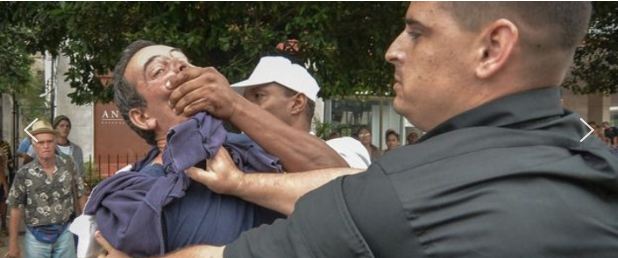 Habeas Corpus will be elevated to constitutional status
Habeas Corpus will be elevated to constitutional status








